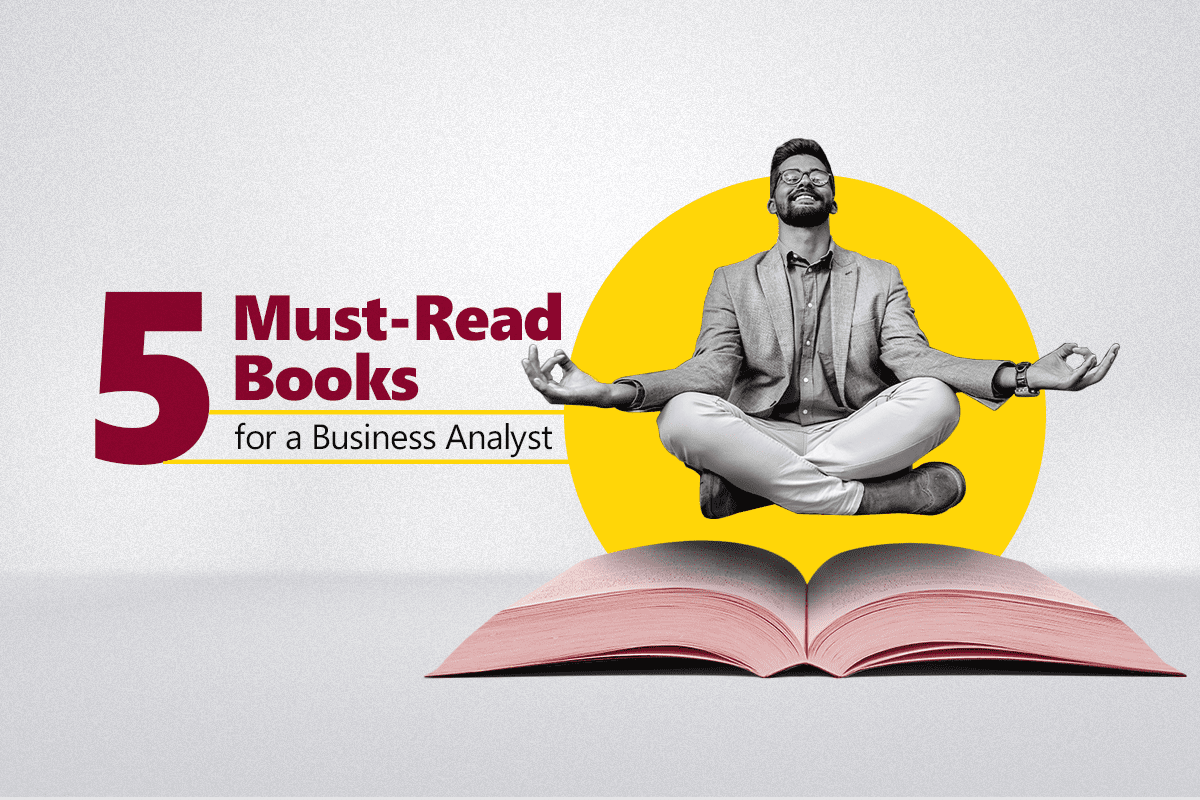A business analyst is one of the most sought-after roles in the industry today. A business analyst is a solution-oriented person who is responsible for enhancing operational efficiency, reducing costs, and augmenting the company’s top-line. To attain this objective, a business analyst comprehensively understands the processes in a company, their interlinkages, and usage and consumption data arising out of such processes and operation. With a holistic view of processes and operations and equipped with the relevant data points and insights, a business analyst suggests ways of enhancing efficiencies and profits of a business.
If you have a knack for problem solving and analytical thinking and a flair for technology, you could graduate into a business analyst role. It would be immensely beneficial to have a great understanding of the domain in which the company operates. For example: a great understanding of banking can help you to become a business analyst in a bank or in an IT company with a bank as its client. You may also be in-demand with fintech and payment companies.
While no amount of reading can substitute relevant work experience, listed below is a curated list of 5 books that can enable business analysts to accelerate their growth. For a budding business analyst, it may be just what you need to kick-start your career as a business analyst.
Book 1: Business Analysis Body of Knowledge (BABOK) guide – Published by International Institute of Business Analysis
BABOK Guide is a bible for any business analyst. It is a must-read to understand the benchmarks in business analysis. It covers all areas of work that a business analyst is likely to undertake during his job.
The book covers perspective on agility in business analysis, the role of information technology, business intelligence, business architecture, and management of business processes. The book has elucidated concepts of business analysis, areas of knowledge that the analyst must acquire, and the competencies that he must hone to improve as a business analyst. The book also covers in detail over 50 techniques that enable a business analyst to thoroughly analyse a business. The BABOK guide has been updated multiple times, so do ensure that you grab the latest copy before starting to read it.
Book 2: Agile and Business Analysis, By Debra Paul and Lynda Girvan
From a linear ‘waterfall’ model of development, digitalization has shifted focus to an agile model of operations. An agile model helps companies to build new-age digital/ mobile-first applications from scratch and take it to the market (customers) fast.
Business Analysts with knowledge of agile methodologies and experience at handling projects that work in agile mode are invaluable.
This book is not only a great introduction to ‘Agile,’ but also a great playbook for you to understand and adopt an agile framework. As a business analyst that is equipped with understanding of ‘Agile’ methodologies, he/she can contribute to enhancing the experience of both internal stakeholders (business users) and external stakeholders such as customers, regulators etc. A Business analyst who is well-versed with agile is strategically placed for companies (especially with IT at its core) to make well-informed business decisions and create an immersive digital experience for all relevant stakeholders.
Book 3: Business Analysis Agility: Solve The Real Problem, Deliver The Real Value, By James Robertson and Suzanne Robertson
The authors have again emphasized on the use of agile techniques to shorten the time taken to deliver value to the customer. This means that the techniques mentioned in the book will help the company to analyse information faster and make decisions swiftly.
The book offers a framework to solve problems (especially customer problems) very fast. It gives ideas on converting the problem into an opportunity to offer value.
Any business analyst (experienced or a rank fresher) can easily understand the content in the book. The authors have emphasized on using story-telling methods and narratives to enable analysts to focus on customer solutions. The book offers a framework which can be practiced easily for success as a business analyst.
Book 4: How to Start a Business Analyst Career, By Laura Brandenburg
Firstly, the author Laura has learnt her ropes in editing and publishing before having moved into a business analyst role. Her own career path and experience form the basis of this book that has enabled many young students straight out of MBA or PGDM courses to become successful business analysts.
The author lays emphasis on the fact that a business analyst can directly come into the managerial tier from a completely different industry type, domain, or primary skill set just like she did. As many youngsters could vie for a business analyst role, the author’s simple and easy to comprehend book can make the difference between you beating the competition for the coveted role of a business analyst.
Book 5: Sprint: How to solve big problems and test new ideas in just five days, by Jake Knapp
Author Jake Knapp enables business analysts reading this book to leverage the power of design-thinking to comprehend all factors and enhance probability of success of any new product or idea. It enlists a clear stepwise process that elicits how a business analyst could define a target, arrive at the most feasible solution, create a prototype, and test it.
What’s more; the book will enable a business analyst to do this all in just 5 days and be well-equipped with vital information to gauge readiness for launching a product or innovative idea.
While there are more books that business analysts must read, the five mentioned above could be a great start. At a junior level, the business analyst role is in high demand and the competition is intense. Any candidate that has read the above books will have an edge over others who haven’t read it.

